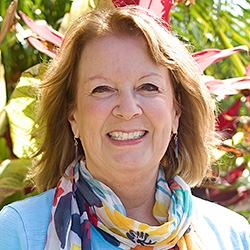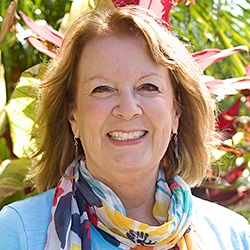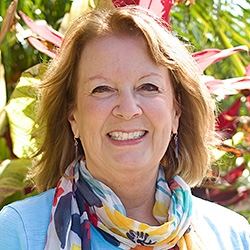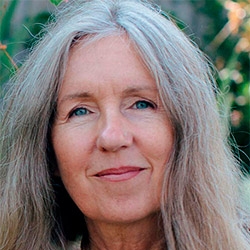
Search Results: humility
-
-
Dear readers,
I’m writing this letter from Bangalore, India. The monsoons have begun in the South of India after a long, dry summer and we’re grateful for the rain.
-
Working for racial justice is a shift in perspective—a shift in understanding and empathy that leads to a change in our actions: to listen instead of talk, to follow instead of lead, to yield rather than dominate. And to accept that I will continue to mess up. Part of working to undo racism is having the humility to know when our own understanding is limited. Read on for more this, and how it relates to meditation -- plus personal and collective liberation.
-
How excited do you get about connecting with people who are proving themselves right and who act like they know it all? Do you prefer the company of not-knowers who are in awe of the mystery of life and exploring with humility and innocent curiosity? Masking our vulnerability in not-knowing can point to deep wounds inside us, where perhaps the common denominator is our desire to prove our worth.
-
Love keeps the thread of connection intact in times when all around us we see the human fabric becoming threadbare. When we dig deep with love into guessing what others care about that had given rise to their actions, it changes us. It brings us closer to understanding the incomprehensible -- and closer to vision, imagination, humility, curiosity, commonality, and loving action. Read on for more on applying this to people we deem "conspiracy theorists", and those who are on the other end of the political divide.
-
Trainer Tip: Sometimes when we look to fix someone's problems we think we're doing it to make them feel better, but in reality we are uncomfortable and we want to feel better. Instead of assuming you know what their problem is or what they need, listen deeply. Your listening presence can bring relief to the both of you and provide additional opportunities for healing. And along the way they may find their own way to a solution.
-
One thing that makes empathic understanding difficult yet valuable is that it can be humbling. If I really open myself to hearing and understanding, while trusting my inner strength of self-knowing, I may be changed by what I hear. My core beliefs or understanding might change and grow. This openness could be key to transforming the energy of conflict into new possibilities for greater connection, creativity, and well-being.
-
Sitting with not knowing is an NVC skill because its the opposite of reactivity. In our haste to find relief from the discomfort of not knowing, we often become defensive, jump to conclusions, and blame and criticize others. Sitting with not knowing requires us to suspend our distrust, tolerate fear and uncertainty - creating space within us. NVC provides a way forward to enter into a space of wonder, possibility, and creativity.
-
For many people, attempting to connect with others across differences can feel akin to walking through a minefield. With humility, tenderness, and courage, Roxy challenges your perspectives and encourages you to open your heart and mind. Roxy uses concrete examples and visual tools to illustrate complex concepts.
-
- Explore what makes the capacity lens radical and practical
- Understand the complexities of how capacity and willingness interface
- Mourn capacity limits within and around us without jumping to conclusions
- Orient to agreements as behavioral anchoring in support of your commitments
-
This chart is intended as an aid to translating words that are often confused with feelings. These words imply that someone is doing something to you and generally connote wrongness or blame. To use this list, when somebody says “I’m feeling rejected,” you might translate this as: “Are you feeling scared because you have a need for inclusion?”
-
Why is it so difficult to change our patterns even when we want to, even when we experience shame or despair about them? Arnina Kashtan offers some of the common pitfalls and concrete steps to overcome them in the future.
-
Trainer Tip: Acknowledge that the person’s life has been affected by your actions and enjoy the feeling of warmth you have when you contribute to a life. Try verbally acknowledging how you feel when you hear that you have enhanced her life.
-
- Support family, community, and organizations to realign with life
- Get the building blocks of integrative decisions that work for all
- Learn to lean on all available capacities to dance together for liberation
- Reweave the threads of togetherness into something stronger than individual existence
-
- Access, follow and train your intuition: how to know without knowing;
- Navigate difficult situations with care for all through an active awareness of your own power, as well as other sources of power in the room;
- Remain aware of who speaks and who doesn’t, of those whose pain is invisible – and what you can do about it;
- Walk towards someone presenting a challenge to a group you are facilitating, while continuing to hold care for the entire group, and more.
-
- Explore the complexities of how we can care for all of life using NVC
- See the role that power plays in relation to observations, feelings, needs, and requests
- Learn how to support people from many backgrounds in being able to apply NVC
- Discern how to engage with these vast topics as we learn and share NVC
-
Total inclusion is impossible: inclusion of all can often lead to exclusion of those who can't bear the behaviors of some. Many groups flounder and disintegrate because of too much inclusion. Limited resources and capacities may make it necessary to exclude. Keeping more coherent shared values and strategies may be another reason to place membership conditions so that what appears to be exclusion may give movements a chance to expand.
-
Trainer Tip: Sometimes our actions keep us from meeting our needs. Let’s say you long for connection with others, but you are also afraid of it, so you push people away. Then you tell yourself that no one likes you, resulting in depression and self-criticism. Self-empathy can help clarify what we truly want rather than focusing on what is wrong with others or ourselves, and help us align in ways more likely to meet our needs.
-
Greetings dear readers of the Growing Roots Newsletter! Mary Mackenzie invited me to be a guest writer for this issue to which I happily agreed. She also shared that her messages are typically more personal in nature, something I always appreciate in a newsletter. The challenge for me then is to...
-
What does nonviolence have to do with group facilitation?
Miki Kashtan believes that nonviolence is a way of being and living that orients us in all our thoughts, words and deeds toward the integration of truth, love and courage. All nonviolent individual and collective actions are aimed at preserving what serves life and challenging what does not. Facilitation is one clear path for bringing nonviolence to the world!
How can we act now, as facilitators, as if the world of our dreams, the Beloved Community, is already in place?




















